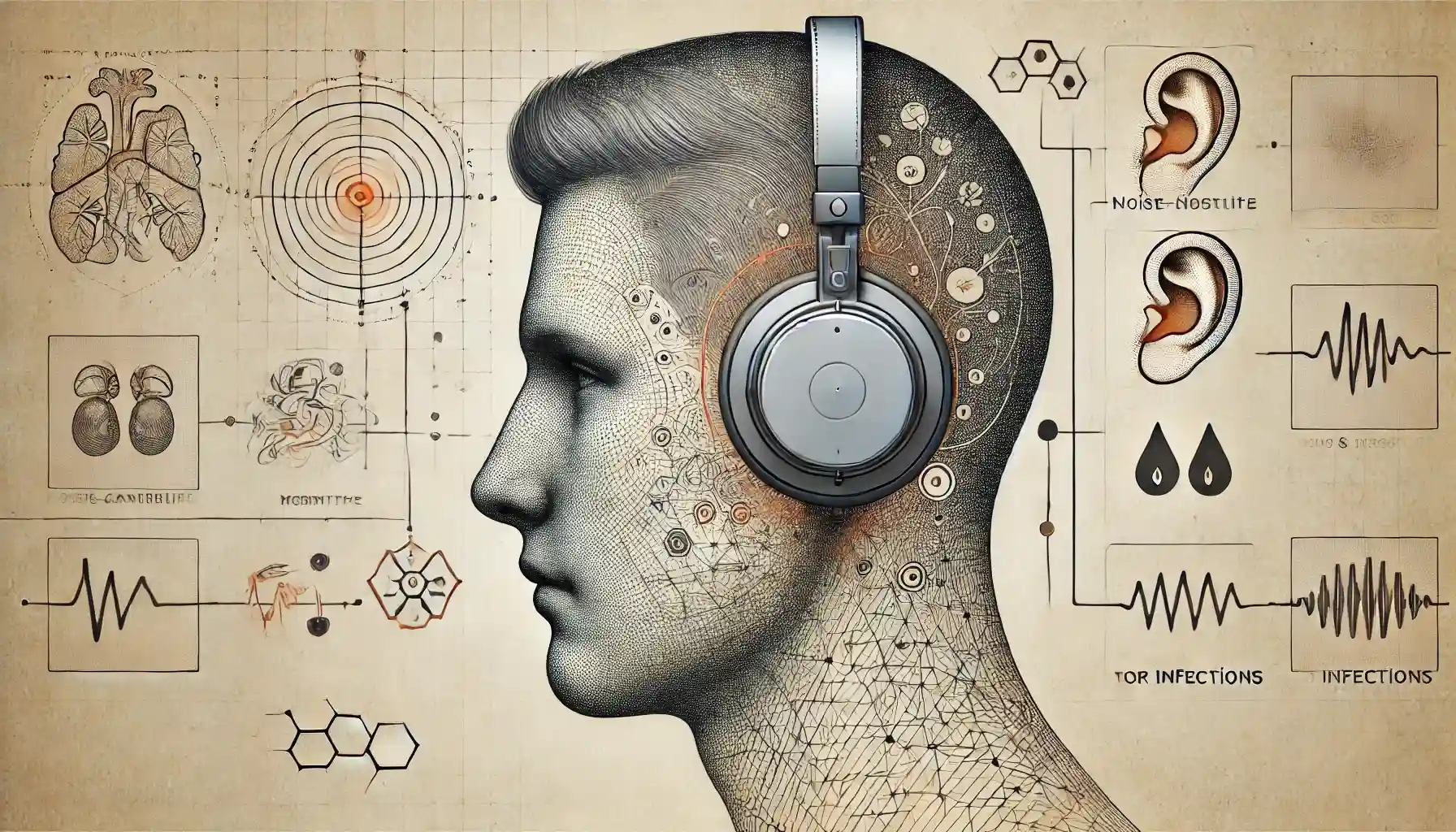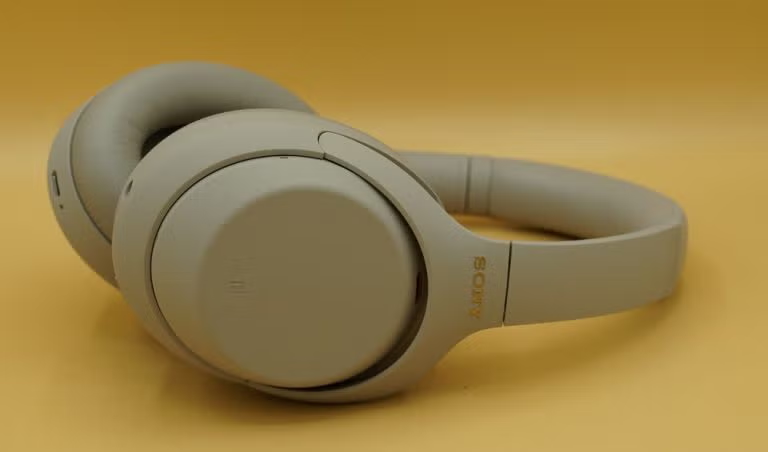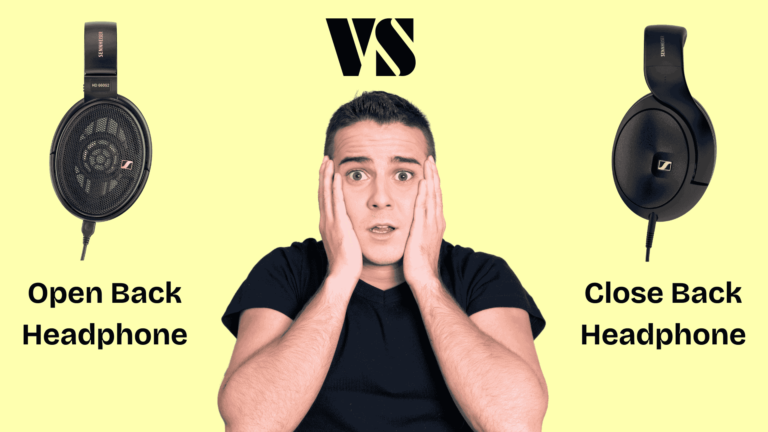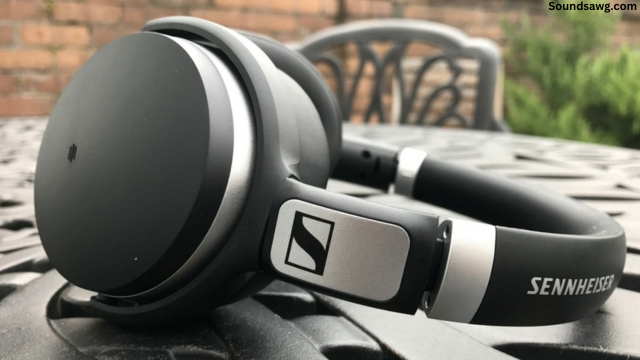1- Introduction
Noise-cancelling headphones have become a staple for those seeking immersive audio experiences or relief from the chaos of everyday life. But could your favorite headphones be contributing to ear infections? With extended use and poor maintenance, these devices may create a warm, moist environment that promotes bacterial or fungal growth.
Neglecting hygiene or sharing headphones can amplify the risk, leaving your ears vulnerable to infections. While the technology itself isn’t harmful, the way we use and care for these headphones plays a crucial role in maintaining ear health. Read on to discover how to use them safely without compromising comfort.
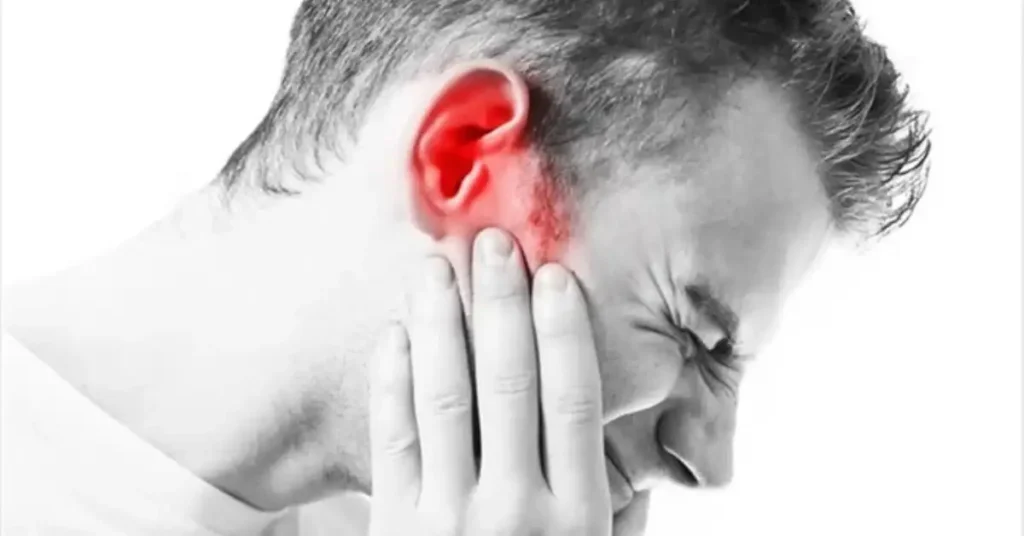
2- Tinnitus: What is it?
Damage to the auditory system is frequently the cause of tinnitus.
Typical reasons include:
Long-term Exposure to loud noises, such as using headphones at high volume, may cause ear infections and hearing loss.
The reason for tinnitus may be made harder by stress and anxiety.
3- How Do Noise-Canceling Headphones Work?
There are two kinds of noise-canceling headphones:
Passive noise cancellation (PNC):
Blocks outside sound through physical barriers, such as thick ear cushions.
Active Noise Cancellation (ANC):
Produces sound waves that use destructive interference to block out background noise. By drastically lowering background noise, ANC can make a space more peaceful.
4- Can Noise Canceling Headphones Cause Tinnitus?
No, Noise-canceling headphones can not be directly linked to causing tinnitus.
Here are some factors related to their use might lead to hearing issues:
Turning Up the Volume: With the quiet environment created by ANC, users might feel tempted to turn up the volume of music or podcasts.
Listening to sounds at high volumes (over 85 dB) for long periods can damage the hair cells in the inner ear, which may lead to tinnitus.
Hearing the Silence: In the quiet setting provided by ANC, some people might notice natural sounds in their ears, like a faint ringing, more clearly.
This means the headphones aren’t causing tinnitus but making an existing condition easier to notice.
Feeling Pressure: Some people feel a sense of pressure when wearing ANC headphones.
While this isn’t harmful, it can feel uncomfortable or cause stress.
Stress or discomfort might make tinnitus symptoms worse.
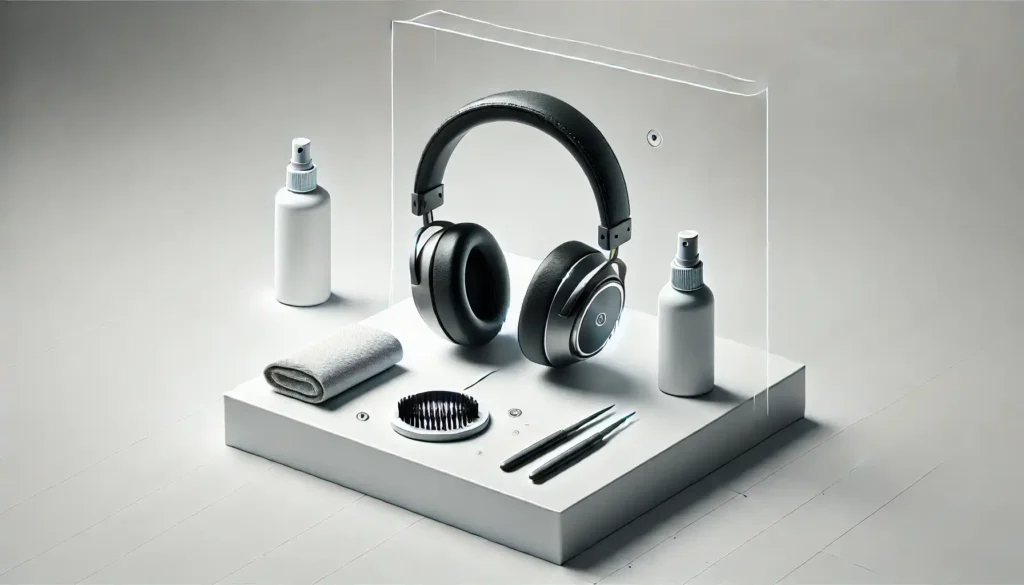
5- Can You Use Noise Cancelling Headphones for Shooting?
Noise-cancelling headphones are often associated with music and travel, but can you use noise cancelling headphones for shooting?
Yes…
Noise-cancelling headphones use active noise cancellation (ANC) technology:
To reduce background noise, such as engine hums or office chatter.
And if I recommend, you can use the best noise cancelling headphones for shooting.
If you’re looking for an extra layer of comfort, you can wear noise-cancelling headphones over earplugs, but this should not replace dedicated shooting protection.
6- Can Noise Cancelling Headphones Help Tinnitus?
Yes, noise-cancelling headphones can be beneficial for individuals suffering from tinnitus.
By reducing background noise, noise cancelling headphones help tinnitus.
Some headphones even offer specialized modes or apps designed to provide relief through sound therapy.
Here’s how noise-cancelling headphones can help tinnitus:
- Masking Tinnitus Sounds: By playing soothing sounds or white noise.
- Reducing Stress: Creating a calmer environment may reduce stress and tinnitus symptoms.
- Improving Focus: Provide relief by minimizing distractions.
7- Tips for Safe Use of Noise-Canceling Headphones
Keep the Volume Moderate: Listen to music or sounds for no more than 60 minutes at a time and keep the volume at 60% or lower of the maximum.
Take Breaks: Give your ears a rest by taking regular breaks from wearing headphones. This helps reduce strain on your hearing.
Watch for Signs of Tinnitus: If you notice ringing in your ears or any changes in your hearing, reduce your headphone use and see a hearing specialist.
Choose the Right Fit: Make sure your headphones are comfortable and don’t press too hard on your ears.
Use ANC (Active Noise Cancellation)Moderately If ANC feels uncomfortable, try using headphones with passive noise cancellation or ones without ANC.
8- Conclusion
Noise-canceling headphones are safe if used responsibly. Keep the volume at safe levels, take breaks, and pay attention to any discomfort.
By being mindful, you can enjoy the benefits of these headphones while protecting your hearing.
By adopting good hygiene practices, taking breaks, and ensuring a proper fit, you can enjoy the benefits of these devices without compromising your ear health.
Remember, your ears are delicate and deserve proper care, even as you immerse yourself in the world of crisp, uninterrupted sound.

